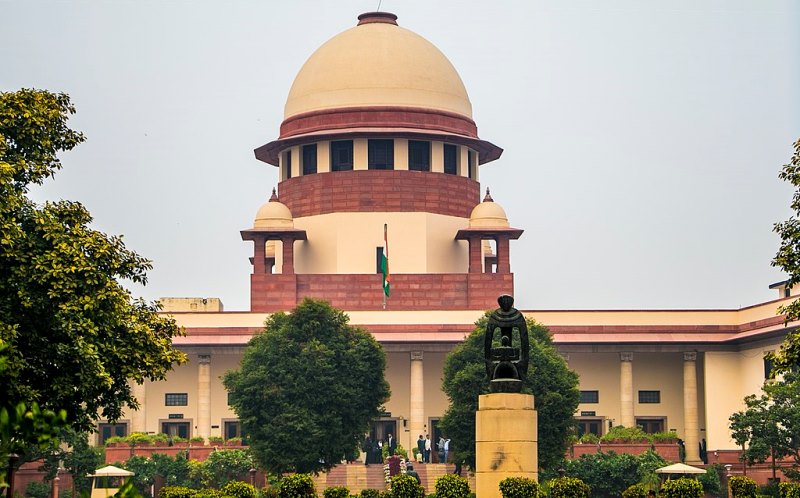SC dismisses plea restricting a candidate from contesting 2 seats simultaneously in Lok Sabha & Assembly polls

New Delhi: The Supreme Court on Thursday refused to entertain a petition filed by Bharatiya Janata Party (BJP) leader, Ashwini Kumar Upadhyay, seeking a direction preventing candidates from contesting two seats simultaneously in Parliament and Assembly polls.
"Absent any manifest arbitrariness for violation of Articles 14 and 21 it is not for this court to strike down the provision as unconstitutional. This issue lies in the domain of parliamentary sovereignty. It is a matter for Parliament to decide if such a choice should be made available," the Supreme Court bench headed by Chief Justice of India (CJI) DY Chadrachud said today.
The Supreme Court also said today’s order does not restrain the parliament to take up the issue and deal with it in the future.
The petition is, accordingly, dismissed, the order said.
The court passed the order after hearing the plea of Upadhyay seeking to restrict persons from contesting election for the same office from more than one constituency simultaneously.
The Supreme Court in its order today said that this is a matter of legislative policy since ultimately, it is parliament's will to see if a country can be granted such a choice. Hence, absent any manifest arbitrariness in the said provision, we cannot strike it down.
Interestingly, the Election Commission of India (ECI) had supported the PIL filed by Ashwini Upadhyay, but the apex court refused to intervene in the matter.
The ECI had said: “The commission is of the view that the law should be amended to provide that a person cannot contest from more than one constituency at a time."
Senior lawyer, Gopal Sankaranarayanan, appearing for the petitioner, told the Apex Court that the issue is mainly against Section 33(7) of the Representation of the People (RP) Act, 1951. This is essentially violative of Articles 14 and 19.
The Supreme Court questioned him, as to how it violated the articles.
Sankaranarayanan said that this is not our view alone, the ECI and Law Commission both have recommended doing away with it.
He said that under Article 19, the question here is, prior to 1996, a candidate could stand for many constituencies, but this was restricted to two.
The Supreme Court, however, had a different view and said that the parliament can intervene again as it did in 1996, but it is not for the court to decide.
The top court said in its order that the parliament will make a change again if it deems it fit. “Let them consider it.”
(With UNI inputs)




